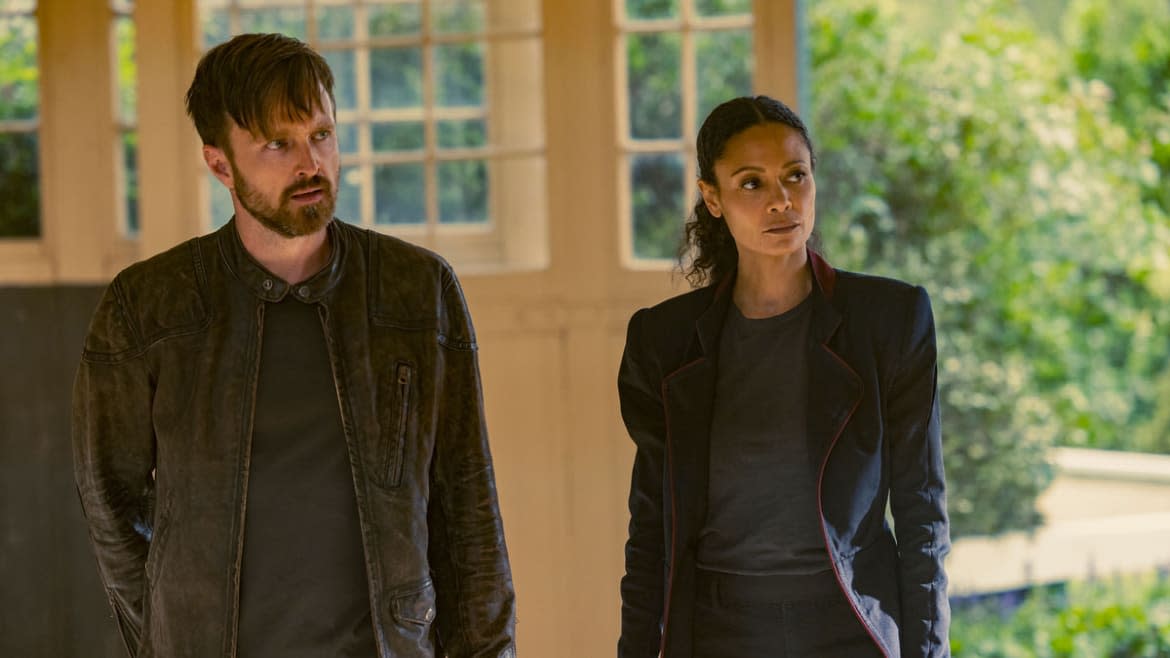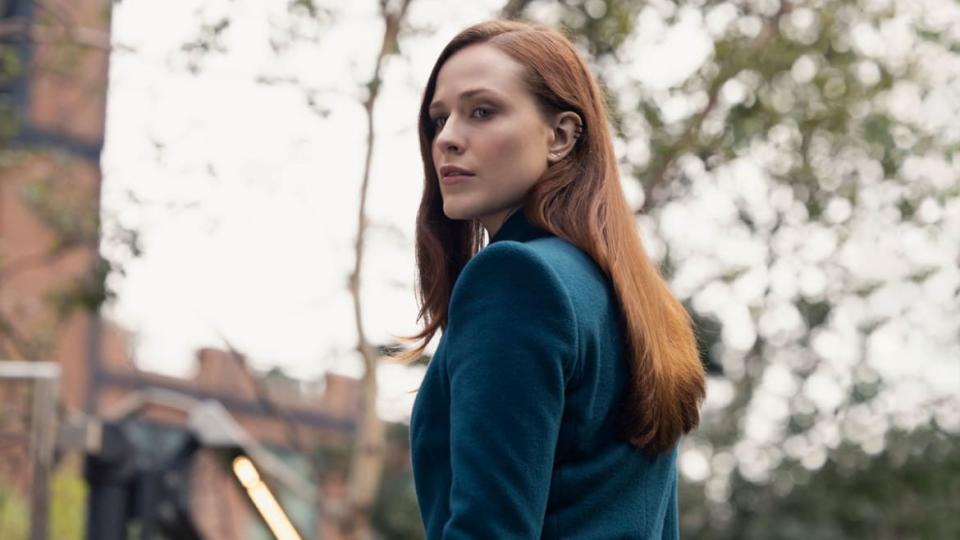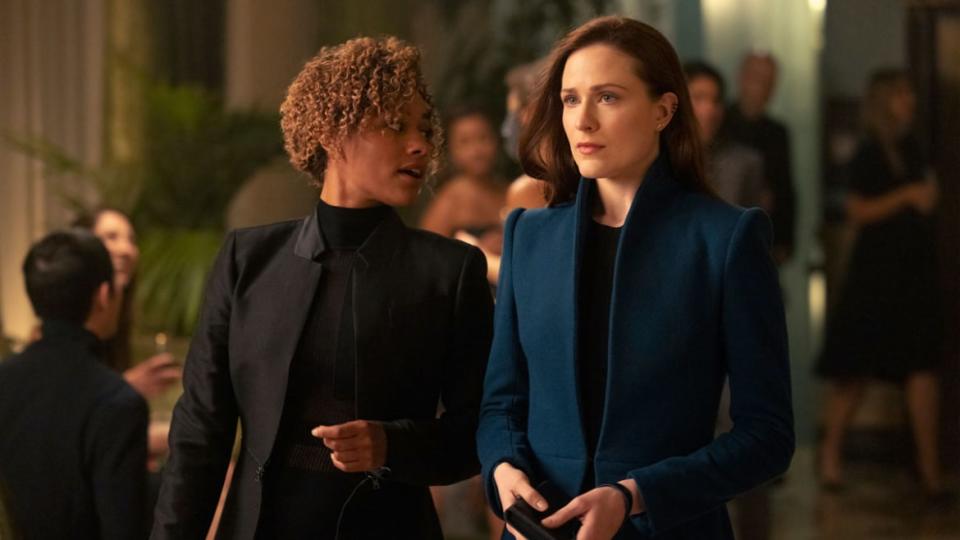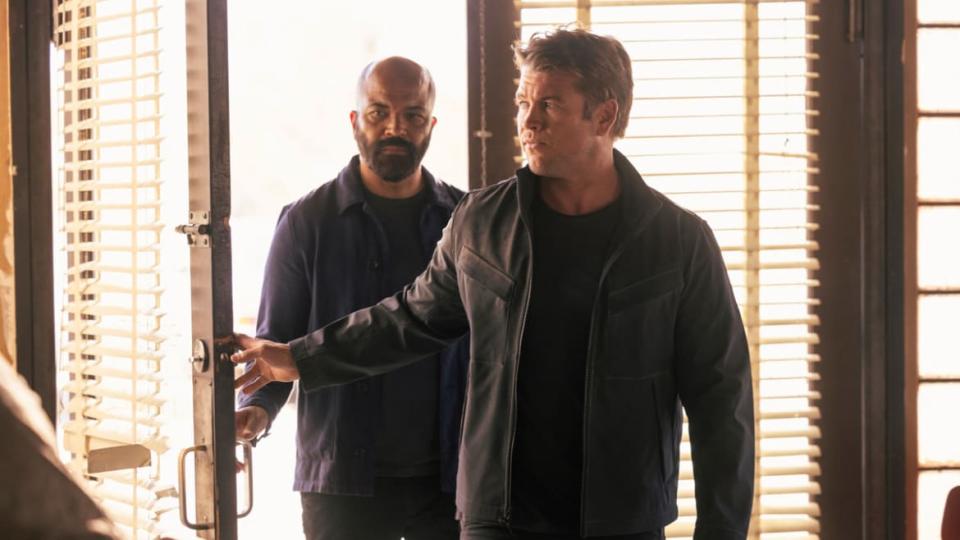Believe It or Not, ‘Westworld’ Season 4 Is Worth Watching Again

- Oops!Something went wrong.Please try again later.
Well over a year has passed since the Season 3 finale of Westworld aired, which seemed to be despised by both critics and the show’s fans.
Writing and production for Season 4 were held up by the COVID-19 pandemic, and it turns out that a lengthy gap can be a good thing. The polarizing drama about cowboys, robots, and free will is finally good again. Even the handful of flaws in the first four episodes HBO made available to critics, while irritating, don’t distract from that familiar one-two punch of puzzlement and shock.
I began watching Westworld during the pandemic. After bingeing the first three seasons in less than a week, I was more invested in the lives of Maeve (Thandiwe Newton), Dolores (Evan Rachel Wood), and Caleb (Aaron Paul) than my own.
Season 3 ended with Caleb and Maeve erasing Rehoboam, the artificial intelligence system built by the Serac brothers to identify and prevent high-risk individuals from harming humanity. Bernard (Jeffrey Wright) entered the Sublime, a virtual reality system, tasked by Dolores to find out how to rebuild the world after its collapse.

Season 4’s first episode skips ahead to the seven-year anniversary of this “revolution,” which seems to be a wise creative decision. Our central gang of characters is no longer bound by the same strictures of their past lives.
Maeve lives off the grid in a comfortable remote cabin somewhere very cold; heavy snow crunches under her still-confident footsteps. Dolores, who has had every bit of her memory wiped (no, really this time), is now Christina, a young woman living in New York City, working for game developer Olympiad Entertainment as a writer.
But it turns out that life as a non-host in the regular capitalist grind isn’t peaches and cream. Christina’s mornings echo Dolores’ life in Sweetwater. Her now-dark brown hair fanned out around her face, she rises from slumber, makes her bed, chats with her roommate Maya (Ariana DeBose, fresh off her West Side Story Oscar win and positively luminous here), and goes to work.
There, she is reprimanded because her story pitches for video-game characters tend to be a little sad: a young woman, living with her infirm father in the countryside, dreaming of a life in a big city. Online dates are equally disappointing. While wealthy and suave, Christina’s suitors condescend about her emotional state, and tell her to take “tabs” or pills to improve her mood.

The cause of her malaise is unclear, but Christina knows something is missing. It’s not the best use of Wood’s talent that she, at least in these first four episodes, is saddled with so little to do. Dolores had way too much energy and fire and spirit to be limited to this rote existence, but, perhaps, that is exactly the point.
Her scenes with DeBose, however, inject some much-needed new blood into the series. DeBose’s energy leaps off the screen. Her performance as the extroverted yet vulnerable Maya is one of the highlights of this season of Westworld, and ranks among the best of the year in TV so far. It’s no small task to convincingly convey joy and heart-stopping fear, and DeBose does both with breathtaking ease.
Caleb is now working in construction, has a wife, Uwade (Nozipho McLean), whom he loves, and a daughter, Frankie (a stern yet spunky Celeste Clark), whom he worships. But he continues to battle PTSD from his and Maeve’s armed confrontation against Rehoboam and its associated goons.
Jeffrey Wright on How Trump’s Shoddy Coronavirus Response Is ‘By Design’
The panicked memories have begun to rub off on Frankie, who has memorized phrases like “securing the perimeter” and is learning to shoot tin cans. Uwade urges Caleb to let go of the past: the rustle in the front yard is likely a stray cat, and not an intruder. His paranoia is warranted, though. It doesn’t take long for assorted henchmen in dark suits to hunt down Maeve, who then comes to find Caleb.
I can’t say who they meet or where they go without giving away too much and ruining the surprise for you. But it’s good.
Bernard is fair game, however. Covered in several years worth of dust and grime in an abandoned hotel room, he emerges from the Sublime to put on a bit of a Dr. Strange routine. He continues to speak in his trademark cryptic style, talking about how he has worked out all the possibilities, and has arrived at the right one.—whatever that means. His sunny rough-and-tumble buddy routine with Ashley Stubbs (Luke Hemsworth), thankfully, is back, too. c
Bernard seems to have a different energy this season. Gone are his usual mannerisms: wiping his glasses while gathering his thoughts, unsure panic radiating out from his face. Present instead is a grim set of the jaw, a superhuman anticipation of everything that is about to happen.
Wright strikes the delicate balance between being a literal know-it-all and an emotionally turbulent programming wizard. And he continues to anchor the audience back to Season 1, when all the smoke and mirrors were just part of the illusion’s many layers. That tumultuous sensory experience is almost gone now. Almost.

Were this a starred review, the editing of the episodes would knock off a star and a half. Westworld was a breath of fresh air because it transcended your average cowboy/action narrative with non-linear, densely structured narrative meditations on A.I., fate, and determinism. In these four episodes there’s one too many smash cuts to black during moments of tension. The audience isn’t stupid and this isn’t a Michael Bay film. We can handle narrative anxiety without needing punches and stabs to cut abruptly to black.
This stale tactic further insults Ramin Djawadi’s extraordinary score. Having won two consecutive Emmys for Game of Thrones, the composer is the one element I think Westworld could never go without, from the very first strains of that stirring player piano orchestral waltz, pulsating with ever-rising bass notes that mount in waves. During the average episode, you could turn the dialogue off and derive just as much apprehension and astonishment from Djawadi’s work.
This season, Djawadi turns his attention to nature. Desert scenes are scored with synth notes that genuinely feel like the sand whipping up and off the dunes. In busy cityscape scenes he combines the ambient patter of feet, traffic, and cell phone beeps to create the perfect score for a corporatized vanilla existence, tinged with just a hint of unease.
Here’s hoping Djawadi is in for yet another Emmy, and that the back half of Season 4 is just as good as the first batch that we’ve seen. Westworld is actually worth watching again. Who’d have predicted that?
Get the Daily Beast's biggest scoops and scandals delivered right to your inbox. Sign up now.
Stay informed and gain unlimited access to the Daily Beast's unmatched reporting. Subscribe now.

